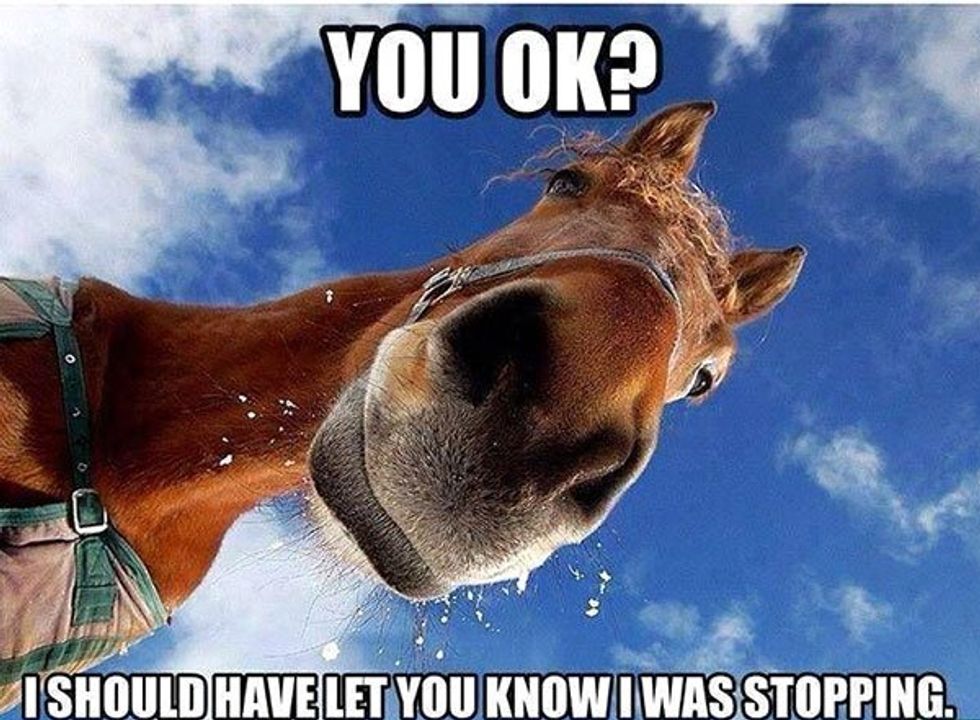While we've all been clamoring over Trump's "Muslim Ban," several other politically relevant things have happened. Of course it's an important executive order and many world leaders had important reactions to it; we've got to know at minimum the gist of it all. No need to go overboard, though. It's easy to become distracted by viral news or yellow journalism, but it's never a good thing. As citizens who want to be constantly informed, we've got to do some of the digging ourselves. Here's how to start being more aware.
1. You can always check on the status of bills in Congress
Just go to Congress.gov. This is important because they post daily which bills are introduced and if they've gone through the House, Senate, veto process, all the way down the line. This way you'll know if you have to call your state representatives in the House or the Senate to talk to the correct person when you're against/for something. When I was doing research for this article, I found more than a few intriguing bills, with topics ranging from increased voter registration security, to medical marijuana on a federal scale, to limiting amounts given for home loans. These things affect all of us. Check it out for yourself.
If you clicked that link, saw the intense list of introduced bills and quickly exited, there's an easier way. You can actually sign up to get notifications when a bill you're tracking passes any stage of the lawmaking process. Plenty of bills get introduced but never make it anywhere. Know when they do. Govtrack.us has voting records, committee information and a list of members of Congress as well.
2. Know what agendas and laws are already in effect
As we've seen, the White House web page changes with whoever is in office. I'm sorry to say that it (like all other sites) is run with a degree of bias. However, it's still useful to study up on. Not everything going on will be caught by reporters and reach your ears and eyes easily. You can find a list of government departments and agencies here -- complete with addresses, phone numbers, and individual websites -- so that you can see more specifically what our leaders are up to.
You should be well versed in what laws have already passed. If you don't know your rights, you can't fight for them and you won't have any. You should know how a law is supposed to be made, how it is actually made, and how to research them in general. "The basics" of laws and executive orders and not exactly basic. The best choice when researching (although not always the easiest with all the legal language) is to go straight to the original document or source of info. View the US Code where general and permanent laws are detailed. However, the code is only updated annually and may not be completely fresh when you're looking at it. Make sure to stay up to date with other sources for day to day updates.
3. Utilize the Freedom of Information Act
... although it is becoming very limited in what power it can wield. There are many things considered public record that you can't find posted online somewhere. You've got to directly request it from the committee or corporation, or whoever. The FOIA was designed so that we would not be kept in the dark about pressing matters that affected us. This is important for journalists especially, who are responsible for spreading news to the public. Unfortunately, the government has created a loophole for blocking curious folk from seeing anything they don't want you to. Under the cry of security, anything can be hidden.
The Sunlight Foundation sums it up simply: "Someone requests documents that a government agency does not want to release. Under current law, a judge may force an agency to comply. But, while the FOIA is pending, the agency asks Congress to pass a law allowing it to withhold the requested information." By the time it's done pending, it's not required by law to be released. These are not rare cases. In addition to security, there are eight other qualifications a bit of information can reach to be withheld. Of course they've got some weight to them, but I have no idea how there is no public outrage against the obvious and extreme abuse of power going on here.
4. Share what you find with others
It's no use if you're the only one in the room who knows anything. Education is to be shared, especially when it comes to politics. We've got to organize and communicate with each other. Social media is obviously the easiest way to get the job done. While most of my Facebook and Twitter feeds were jammed with news of Trump's list of banned countries, which were very angering, there were some other gems that got buried. Here are a few I'm going to share with you right now (practice what you preach, right?).
-Drilling encouraged in national parks
-Congress giving away national lands
-Massive spill in Yellowstone River contaminates drinking water
5. Know where you stand
Being aware means you realize our lack of knowledge goes deeper than fake news and biased media and that this has been going on for much longer than the Trump administration. Trump is just terrible at hiding it. Being aware also is a skill you learn through practice and through empathy. The political is always personal. You have to understand people to understand why they've formed their opinions or stances on certain issues. If you don't know where someone is coming from, you'll never be able to persuade them, influence them, or work with them toward a common goal. This applies to CEOs, your neighbor, and the President himself.
You also have to know where you come from. What experiences shaped your opinions? Where do you stand on the five levels of political awareness? How can you climb up it? How can you help others up?
6. Do something
This is a cool article and all, but it means absolutely nothing if you're not motivated by it. Do some research. Start an organization. Spread the word. Think about it. Get out there!



















 teenhorseforum
teenhorseforum














